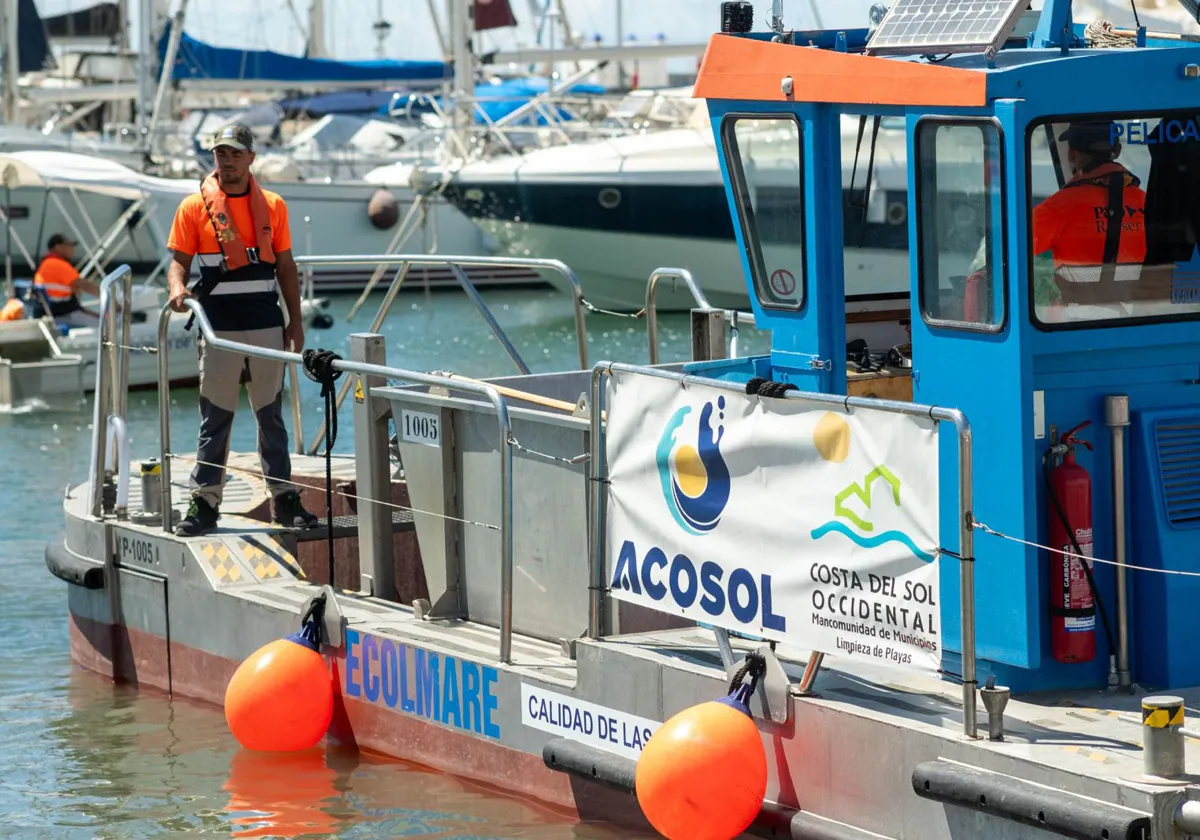More than 80% of rubbish collected from sea on western Costa del Sol during summer was plastic waste
Fifteen cleaning vessels were pressed into action along the coast during the peak holiday season this year
María Albarral
Marbella
Monday, 9 September 2024, 15:22
Some 83% of the rubbish dumped into the sea off the Malaga coastline is plastic, according to new data.
Cleaning boats collected a total of 90 cubic metres of waste from the sea during the summer months and 83% of the rubbish was plastic, according to the data provided by the company carrying out the service for the Mancomunidad, the public consortium of town halls on the western Costa del Sol.
"We have to be extremely careful with the environment, since, obviously, the plastic that reaches the sea is deposited by us. It is up to all members of the public to take care of the environment, and I call on us to be aware that we must be more careful," president Manuel Cardeña said.
In addition to various plastics, there were also pieces of driftwood, fishing pots, buoys, polystyrene boxes, ropes, items such as beach chairs and umbrellas, and pallets. Cleaning boats also removed a large number of empty fuel canisters from the sea.
Impact on the environment
Apart from being a health problem, it is a major environmental concern with marine flora and fauna at risk. Plastics not only pollute the coasts, but also affect the deep sea. Animals become entangled in them and mistake the smallest fragments for food, which can poison and kill them. Humans, due to the food chain, can also ingest this material.
According to studies carried out by the European parliament, discarded products most commonly found in the sea include: bottles, caps and lids; cigarette butts; cotton buds, packets of crisps, sweets or derivatives; sanitary products such as tampons or wipes, bags, cutlery, straws and mixers; glasses, lids and cups; balloons and food containers.
